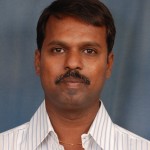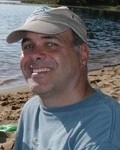Meet the Members: Carl Boettiger, Sridhar Gutam and Matt Jones
The Open Science Working Group has over 350 mailing list members and many have chosen to be listed as official members here on the website. You can find a complete alphabetical list at the bottom of the Members page.
To showcase the work and interests of our diverse group, members of the open-science mailing list were recently asked to answer a few questions on themselves and their thoughts on open science. You can find what we hope will be the first of several of these features below! The working group should be a place to link up with people and projects that may be of interest to you, so don’t hesitate to start a conversation with Carl, Sridhar or Matt individually or via open-science.
If you would like to be added to the membership list or contribute a mini profile please get in touch with the Working Group Coordinator: Jenny Molloy (jenny.molloy@okfn.org)
Carl Boettiger
What’s your background?
I received my bachelor’s in physics from Princeton, currently I am PhD student at UC Davis, working on regime shifts in ecology & evolution.
What got you interested in open science?
Theorists aren’t often taught to to keep lab notebooks. After years of scribbling on the nearest napkin or chalkboard and acquiring a good intuition for which tables and other surfaces display chalk well, I started to realize my need for a less ephemeral way to keep track of my research (if I had a better memory maybe I would have made it as a biologist earlier in my career). I turned to the internet oracle for answers, and stumbled into a videocast from Cameron Neylon about his open lab notebook. Experimental chemistry is a different as possible from my own workflow, but it was obvious that electronic & web-based tools were offering him something a chalkboard would never do.
Trying to learn how to create my own notebook meant reading Cameron Neylon, which soon meant friendfeed’s science 2.0 / life-scientists room & later twitter. Reading these ideas, it sounded like these notebook systems had all these additional benefits beyond having a search function, that worked to their fullest capacity when open. I wanted the full experience, the full benefit. I wanted to see if it was true. I decided to try out an open lab notebook. It’s accelerated my career, expanded my network, improved the quality and reach of my work, at times intrigued, puzzled, and frightened my colleagues, and has since inspired others to similar endeavors. Keeping an open lab notebook intensifies the things I most enjoy in research and keeps me from taking myself too seriously.
In your opinion, what is the most exciting thing that open science makes possible?
Science. Someone once said, science is like a parachute: It only works if it is open. Sure, there’s different degrees of openness — Galileo announced his discoveries in ciphered anagrams — but until you share your discoveries your just a funny crank in the attic. Today we prize the public communication of the result over primacy of the discovery itself. Greater openness makes science advance more quickly, more accurately, and with greater impact to the rest of the world. The innovations which served this function in previous centuries were never designed to scale to the pace, breadth, and depth of science practiced across the globe today. The open science movement explores and creates practices for sharing science that can scale and adapt to these needs.
Sridhar Gutam
What’s your background?
I am a Plant Physiologist and I am into Agriculture Research Service (ARS) (of Indian Council of Agricultural Research [ICAR], New Delhi ). Currently I am working as Senior Scientist (Plant Physiology) at Central Institute for Subtropical Horticulture (CISH) , Lucknow an constituted establishment of ICAR.
What got you interested in open science?
I started following IPR issues in Research since my joining in ARS in 2004 and was very much convinced with the thoughts and opinions of Open Access and Biological Open Source and started practicing & advocating Open Access among my peers by gaining knowledge from various online fora.
In your opinion, what is the most exciting thing that open science makes possible?
In my opinion, its individual interest and commitment to the science for people which can only make open science happen. However, policy issues of the research managers, Universities and Government influence the science to progress by Open Science approach.
Matt Jones
What’s your background?
Basically, ecological informatics, focusing on data management, data integration, analysis and modeling in support of synthetic science. More details here in my bio.
What got you interested in open science?
The National Center for Ecological Analysis and Synthesis is predicated on the re-use of existing data for synthesis that advances our knowledge of ecological and environmental systems. Open Science has been a natural thrust of our institute since its inception because of this reliance on other people’s data.
In your opinion, what is the most exciting thing that open science makes possible?
Open science enables new scales of collaboration that accelerates science in ways that were unimaginable just a few years ago. I am excited about the possibilities for accelerating synthetic science through the synergies among open data, open source, and open access publications.



Leave a Reply